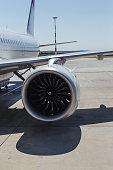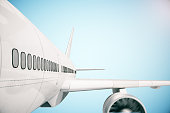The Evolution and Impact of Private Airlines in the Global Aviation Tr…
페이지 정보
작성자 Tiffany 작성일25-08-10 15:59 조회17회 댓글0건관련링크
본문
The aviation industry has undergone important transformations over the previous few many years, with private airlines emerging as a pivotal segment within this dynamic panorama. Not like their larger counterparts, which regularly give attention to mass transportation, private airlines cater to a distinct segment market that prioritizes personalized service, flexibility, and convenience. This text explores the evolution of private airlines, their operational fashions, the impression they have on the aviation trade, and the challenges they face in an more and more aggressive market.

Historic Context
The idea of private air travel dates back to the early 20th century, with the introduction of charter flights and small aircraft designed for personal use. However, it was not till the deregulation of the airline industry within the late 1970s, particularly within the United States, that private airlines started to flourish. The Airline Deregulation Act of 1978 allowed airways to set their own routes and costs, resulting in an increase within the number of carriers and private airplanes for hire a diversification of services.
Within the nineties and 2000s, the rise of know-how and the web further revolutionized the industry. The power to e-book flights online and the emergence of private jet charter providers made air journey extra accessible to a wider audience. Companies like NetJets and Flexjet pioneered fractional ownership fashions, allowing people to buy shares in private jets, thereby reducing the cost of ownership while maintaining the advantages of private air travel.
Operational Fashions of Private Airlines
Private airlines function below various models, every catering to different customer needs. The primary fashions embody:
- Charter Services: These airlines provide on-demand flights, permitting customers to e-book a whole aircraft for a specific journey. Charter companies are fashionable among business executives and leisure travelers searching for flexibility and convenience, as they will select departure instances, routes, and even in-flight services.
- Fractional Possession: This mannequin allows a number of owners to share the costs and utilization of a private jet. Fractional possession corporations handle the logistics of flight operations, maintenance, and scheduling, providing homeowners with entry to a fleet of aircraft with out the burden of full ownership.
- Jet Cards: Jet card programs provide customers a pay as you go package deal of flight hours on private jets. This model offers the advantages of private air travel without the long-time period dedication of ownership. Clients can purchase a set variety of flight hours and enjoy precedence entry to aircraft.
- Membership Applications: Some private airlines supply membership-based mostly services, the place clients pay an annual charge for entry to discounted rates on flights. These packages often embrace additional perks, equivalent to concierge companies and unique access to sure aircraft.
The Impact of Private Airlines on the Aviation Trade
Private airlines have significantly influenced the aviation business in several methods:
- Market Diversification: The emergence of private airlines has diversified the aviation market, providing consumers with more options past conventional business airways. This competitors has led to improved services and pricing throughout the trade.
- Financial Contributions: private airplanes for hire Private airlines contribute to local and nationwide economies by creating jobs, supporting tourism, and facilitating business journey. They typically serve regions that may not be accessible by business airlines, enhancing connectivity and promoting financial growth.
- Innovation and Technology: The private aviation sector has been at the forefront of innovation, adopting advanced technologies to boost security, effectivity, and buyer experience. From in-flight entertainment techniques to cellular apps for booking and managing flights, private airlines are sometimes quick to implement new applied sciences.
- Environmental Issues: While private airlines have confronted criticism for his or her environmental impression, many are taking steps to address sustainability. Initiatives include investing in more gasoline-efficient aircraft, exploring various fuels, and taking part in carbon offset programs.
Challenges Going through Private Airlines
Regardless of their progress and contributions, private airlines face a number of challenges:

- Regulatory Hurdles: The aviation industry is heavily regulated, and private airlines should navigate complex authorized frameworks that range by country. Compliance with security standards, air site visitors laws, and environmental legal guidelines will be burdensome, particularly for smaller operators.
- Financial Fluctuations: Private air travel is commonly viewed as a luxury, making it inclined to economic downturns. During periods of financial uncertainty, companies and individuals might cut back on discretionary spending, including private flights.
- Competitors: The rise of low-value carriers within the industrial airline sector poses a challenge to private airlines. While these carriers concentrate on mass transportation, they will appeal to customers who would possibly otherwise consider private journey, significantly for short-haul flights.
- Public Notion: The perception of private air travel as elitist can be a barrier to growth. Private airlines must work to communicate the advantages of their companies, emphasizing convenience, security, and the power to succeed in remote locations.
Future Prospects
The way forward for private airlines appears promising, with several trends shaping the industry:
- Increased Demand for Flexibility: As business journey continues to evolve, private airplanes for hire the demand for versatile journey options is anticipated to rise. If you have any inquiries relating to where and the best ways to use private airplanes for hire, you can call us at the web site. Private airlines are effectively-positioned to meet this demand, private airplanes for hire providing tailor-made solutions for corporate shoppers.
- Technological Advancements: The integration of expertise into the aviation sector will proceed to boost the customer experience. Innovations equivalent to synthetic intelligence for flight scheduling, improved booking platforms, and enhanced in-flight providers will doubtless change into customary.
- Sustainability Initiatives: As environmental issues grow, private airlines are possible to speculate extra in sustainable practices. The event of electric and hybrid aircraft might revolutionize the business, lowering the carbon footprint of private air travel.
- Enlargement into Rising Markets: As economies in creating regions develop, the demand for private air travel is expected to extend. Private airlines could expand their operations into these markets, offering services that cater to the wants of affluent travelers in rising economies.
Conclusion
Private airlines have carved out a major area of interest in the aviation business, providing important companies that cater to a various clientele. As they proceed to evolve and adapt to changing market conditions, their affect on the worldwide aviation panorama will likely grow. By embracing innovation, addressing environmental considerations, and navigating regulatory challenges, private airlines can improve their position and contribute to the continued evolution of air travel.
댓글목록
등록된 댓글이 없습니다.